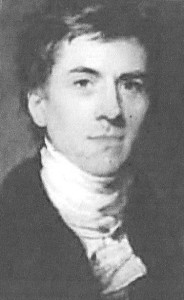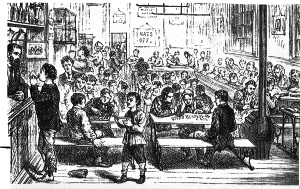Journalist, Politician – Lord Chancellor 1830 to 1834), Scientist, Writer, one of the founders of the Society for the Diffusion of Useful Knowledge, the London Mechanics’ Institution and University of London and a great supporter of the Mechanics’ Institution Movement.Born in Edinburgh and entered Edinburgh University at the age of 14 to study mathematics and natural science. Interested in optics he wrote and published a number of scientific papers through the Royal Society including a seminal paper entitled ‘Experiments and Observations of the Infection, Reflection and Colours of Light’ and delivered whilst he was still a student. At the age of 25 he was elected a Fellow of the Royal Society. He also studied law and decided to become a practising lawyer but practised mainly in London having entering Lincoln’s Inn in 1803 and in 1808 was called to the bar. To supplement his income he also became a journalist and subsequently was involved with others in the founding of the Edinburgh Review in 1802 for which he wrote 35 articles in the first two years. The Edinburgh Review quickly established itself as one of the most influential political publications of the 19th century. A portrait of Brougham is shown below.

Brougham was a prolific writer covering a very wide range of topics ranging through the arts, mathematics, politics and science reflecting his interests and remarkable ability and commitment to education and social issues. Elected as an MP in Winchelsea he became very active in Parliament where he was often perceived as being too radical and as a result many of his ideas and attempts at reform were defeated. In 1830 he was appointed Lord Chancellor and was influential in getting the Great Reform Act of 1832 through parliament and also involved in instigating significant reforms to the legal system in England and Wales. Brougham campaigned on specific issues rather than toeing the party line and this eventually brought his ministerial career as a Whig to an end in 1834 and after 1840 he aligned himself with the Tories and remained active in the House of Lords. A portrait of Henry Brougham is shown opposite.
Throughout his political career he was a strong advocate of mass state education and educational reform particularly in regard to technical education. It was his commitment and support of technical education and the Mechanics’ Institutions that made him such a remarkable and farsighted individual. Throughout his life he supported the Ragged Schools Union and the Mechanics’ Institutions movement. Unfortunately his ideas on educational reform were ahead of his time and unpopular. Educational bills that he attempted to introduce were systematically defeated between 1820 and 1839. He was a key figure in the creation of the Society for the Diffusion of Useful Knowledge (SDUK) [see history of technical education]. He actively promoted technical education and the Mechanics’ Institutions through a series of inexpensive publications produced for the SDUK having appointed a well respected publisher Charles Knight [see biographies] to oversee these publications. He was very directly involved in the production of many of these publications e.g. the Library of Useful Knowledge (started in 1827) and other fascinating sets of publications issued by the SDUK including titles such as the Penny Cyclopedia 1833-1844), Penny Magazine (1832-1845) and the Quarterly Journal of Education (1831-1836). A typical scene at a Ragged School Instutution is shown opposite.

He was instrumental in creating with others the London Mechanics’ Institute in 1823 In 1825 he wrote a seminal pamphlet ‘ Practical Observations upon the Education of People’ that helped to popularise Mechanics’ Institutions. He became President of the Club and Institute Union (created in 1862) which was closely associated with the Working Men’s Clubs and Institutes. He was Vice-President of the British and Foreign School Society. Brougham sat on the Senate of the newly established University of London with Michael Faraday. He was a strong advocate for the rights of women and against slavery. Henry Brougham was a remarkable individual and reformer in many aspects of education and social affairs and a key figure in the development of technical education.
He also has the distinction of making the longest speech in the House of Commons lasting six hours!
Reference:
- Cavenagh. F.A. ‘Lord Brougham.’ Journal of Adult Education. Vol. IV. 1929.

Recent Comments